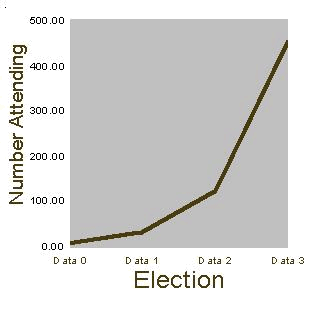Christopher Boynton the Elector
1400 to 1430: When a call for parliament was issued eight Yorkshire lawyers got together and decided who would represent the county in parliament. (Gooder, 1935) They were not acting for themselves. They were the lawyers of the earls and dukes of the county, and acting for them. The earls and dukes were in control of who served as knights of the shire for Yorkshire.
Then parliament added a property requirement for electors in 1429; land producing 40 shillings income or more was required to be an elector. It was intended to keep the riff raff out. Instead it piqued the interest of the landed gentry who had never considered acting as electors. When the call went out for parliament in 1435 Christopher and 29 of his friends showed up and outvoted the lawyers of the earls and dukes [The electors].
The lawyers and their patrons fought back, and they won the next election. Then came the shocking election of 1441; 452 electors showed up for the election. This was so extraordinary that the crown commissioned an investigation of this unexpected demonstration of interest in voting. In a society run by kings and dukes and earls political mobilization is suspicious.

This is a plot of the numbers attending to act as electors; with an interpolation for the third election. It was an explosive growth of interest in the election -- the growth was fourfold with each election. Eight in the last of the old elections; then 32 when Christopher and friends showed up. Then we interpolate 124, which is four times 32. Finally, four times 124 or 456.
The landed gentry did not look back, and the dukes and earls had lost control of who would represent Yorkshire in parliament.
It was not just Yorkshire; though they were in the lead. All over the country the landed gentry began to assert themselves.
One final point worth noting: how quickly political change was happening. In 1405 Henry, Christopher's brother, lost his head following dukes and earls [Northumberland and Mowbray] in revolt against the king. Only thirty years later Christopher was leading the charge asserting a new role for the landed gentry -- over against the dukes and earls.
....
This is a re-telling of the account of Gooder, A. ed. (1935) Parliamentary Representation of the County of York 1258-1832 vol 1., Yorkshire Archaeological Society Record Series, vol. 91, pp. 2-6 and p. 236.